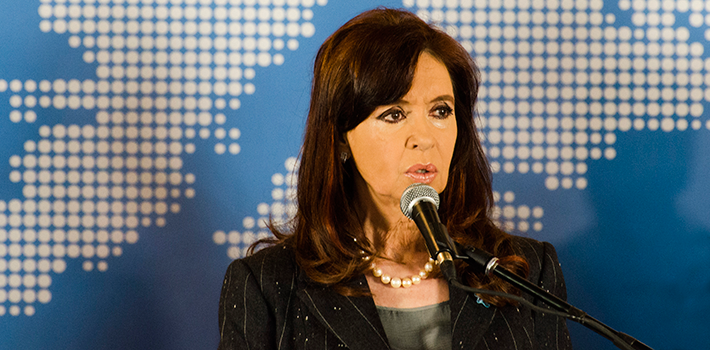
… There are millions of Argentineans who would economize even to their hunger and thirst to fulfill the promises of our public commitments in the foreign markets
It was not President Cristina Fernández de Kirchner or her late husband who said this, nor any of the authorities that have governed Argentina in recent decades. It was delivered in 1875 by President Nicolás Avellaneda, when his country was going through a difficult financial situation that questioned the solvency of the nation and its international credibility. Avellaneda made severe budget cuts, dramatically reduced the number of public employees, cut their salaries, and before long, caught up with debt payments and managed to restore the world’s confidence in the goodwill of Argentina.
Today, however, we are witnessing a completely different reality, as the current president and her economic team accuse their creditors of behaving like vultures. “Vulture funds” is what they call those who manage the debt that was not restructured as part of the negotiations carried out in 2005 and 2010. To clarify this complicated situation, I will remind the reader that, in late 2001, Argentina was in what is called a default. It could not pay the interest or capital on its vast debt — about US$144 billion — that had accumulated over the years.
The Congress of the Republic, in a celebratory fashion, decided to repudiate the foreign debt and sharply devalue its obligations in the local market. Tens of thousands of Argentineans, from one day to the next, saw a sharp reduction in their life savings: for every 100 pesos they held in December 2001, they kept only 28!
Foreign creditors complained, and in the end, the government reached an agreement with them: their debt would be paid, but only partially. Creditors would lose two thirds of their invested capital and accept reduced interest. Most of these investors agreed in order to avoid losing everything, but some resisted. Seven percent of them did not sign the agreement and sold their bonds to investment funds.
After a long trial, these funds managed to get Argentina to commit to paying what it owed in full. When a court in New York — to which both parties agreed to submit their case — ruled in favor of these funds, Argentina found itself once again in a serious financial situation and at the brink of default.
The Kirchner administration has, of course, sought to annul the ruling. They’ve called their creditors “vultures” in the media, cursed them with expletives, and have even resorted to going to the Organization of American States (OAS) to avoid paying what they have always owed and stubbornly refuse to honor. The OAS has lent the country its solidarity — it has not lent it money, of course — and the opposition, blackmailed by nationalist sentiments, has generally supported Kirchner.
This is, however, no just or morally defensible cause. To begin with, not paying what is owed is not ethically justifiable. What would happen in our world — our personal, social, and business relations — if we all decided, for whatever reason, to not pay our debts? Who would then ever be naive enough to lend money again to other, whether it be individuals, companies, or governments? Secondly, Argentina’s debt restructuring could not, and cannot, be regarded as binding to its creditors. They bought debt in good faith and do not have to submit to haircuts that significantly erode their net worth.
Beyond these basic considerations, there are also other concrete facts that point to the responsibility of past governments of the country and not of its creditors. Argentineans have supported high taxes, an aggressive tax entity that violates all individual rights, and sometimes intolerable pressure from the Treasury. Successive governments have imposed a heavy burden on taxpayers, but have not delivered proportional value in return. Their public spending has served to feed a massive, unproductive bureaucracy and extensive social programs, making millions of people dependent on government aid.
Nicolás Avellaneda’s Argentina was vastly different. After paying its debts, the country undertook far-reaching programs to create a solid infrastructure. Railroads, ports, roads, and public buildings of all kinds, laid the foundation that put the country among the world’s richest.
The real vultures are the governments that suck wealth from citizens for their own benefit through taxes. Vultures are the corrupt government officials that abound in the Kirchner administration, starting with the vice president. Vultures are those who spend other people’s money to assert power for themselves and rule as despots, not the ones who lent their hard-earned money to a government that is unable and unwilling to follow through with its obligations.
 Versión Español
Versión Español












